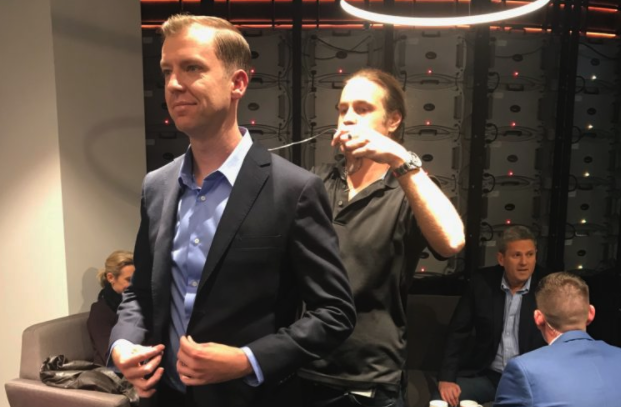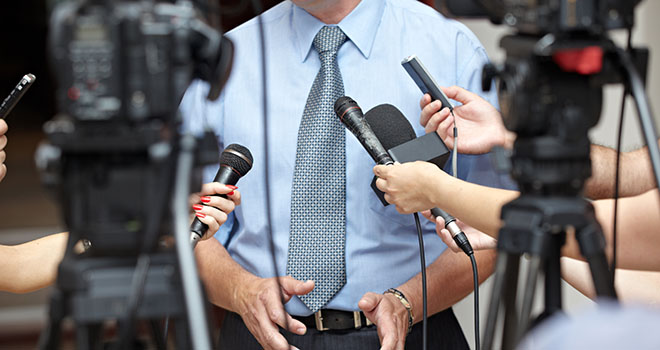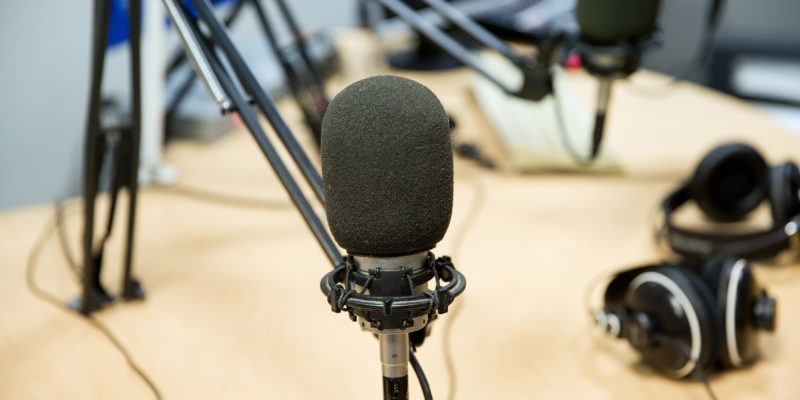Media interviews can have a huge impact on a retailer’s reputation and bottom line, both positive and negative. Since there’s often a lot at stake, media interviews can be nerve-racking and tricky – especially since the skills needed to be interviewed well don’t come naturally to most people.
Thankfully, with a little preparation and a better understanding of what journalists actually want, even the most uncomfortable of interviews can be transformed into a great opportunity to build your retail brand.
Get your demeanour in check
Much of the success of an interview will come not from what you say, but how you say it. In order to come across well, it’s important to make sure that you exude both confidence and calm. A calm, confident demeanour will speak volumes about your credibility to speak on the topic at hand. The only way to achieve this is practice, practice, practice.
Confidence will be achieved by being as candid and honest as possible. If the situation allows for it, try your best to be positive and upbeat – no matter how anxious you might be feeling inside.
Rambling is a sure sign of nerves, so in order to get to the point, prepare three to five short key messages that are backed up with evidence or examples. What is your default message if you come unstuck? What is the point you want the listener or viewer to carry away? Make yourself familiar with these points so that they form the core of your responses.
If a retailer can prove they’re not afraid to tackle hard questions, the confidence it exudes is unparalleled. Confidence, openness and honesty are all keys that unlock the path towards trust, so it’s important to get comfortable with sharing. A PR practitioner can offer your business the opportunity to answer those questions more often, on platforms with bigger and more engaged audiences.

Avoid sounding like a politician
We’ve all seen media interviews with business owners that look a little too much like an embarrassing interview with a political candidate. They appear uncertain, vague, and mistrustful of the person interviewing them. In order to avoid this, preparation is key.
In order to avoid being caught off guard and resorting to vague or non-existent answers, make sure to work out how the interview will be conducted and what the purpose is before the interview. Ask questions such as: ‘when is the journalist’s deadline?’ and ‘how will the interview be used?’ For example, if the interview will form part of a larger article, what is the article about? What is the journalist hoping to learn from you, and will others also be interviewed for the piece?
With answers to those questions, you are already on your way to being able to prepare for the interview. Even if you only have a few minutes to prepare, it means that you won’t be caught off guard and you will be more useful to the journalist.
Remember, the aim is not to sound like a cagey politician, spurting out rehearsed slogans or not answering the questions properly. The aim is to give an interview that is informative, authentic and answers the questions well, while getting your point across in a concise and compelling way.
Know your objective and your audience
A strong media interview will always come back to knowing your objective. Why are you doing this and what do you hope to achieve? Why should the journalist be interested and why would their audience care? What do you want to happen as a result of the interview and what do you want people to think, feel or do? i.e. What is your call to action?
Your objective and your audience should go hand in hand, because you can’t decide what you want from people until you know who they are, what their motivations are, and how they tend to act. Who is going to be reading, listening or watching the interview and which of these people do you want to influence?

Prepare for a crisis
In the age of coronavirus, it’s worth preparing for ‘crisis response’ media interviews, even if you can’t see any crisis looming on the horizon. During these kinds of interviews, your aim should be to set the story straight or reassure the public.
During a crisis, any attempt to limit access to journalists will simply get them off-side and cause unwanted suspicion. Share as much information as you can, and ensure that what you share is helpful to their story. If you can achieve this in a warm, compassionate, friendly manner, then you’ll get a far better result.
If there are certain things you can’t share, be very frank about what they are, and if possible, explain why you can’t give that information. The key here is to not toe the line, but go the extra mile. Don’t give the impression that you are just trying to keep up (even if that is how you feel). Exude confidence by proactively doing more than required and communicate this in a wide variety of ways.
Your attitude has a huge effect on the overall media coverage of your business. It goes without saying that if you meet the media with hostility, the same will likely be reflected back at you through their coverage. If you treat them like nuisances from the beginning, they will inevitably become just that. You may find yourself stuck in an endless game of whack-a-mole: forever trying to squash stories only for another to pop up elsewhere.
Make the journalist’s job easier
Most journalists are not out to stump you, but if you have not prepared and don’t know the answers to basic questions, then you are not helping them do their job. When I secure media coverage for a client, it is because I used the principle of helping make a journalist’s job easier by giving them a story that they are happy to cover and then giving them as much as I can so they have what they need to do that well.
Each journalist has a preferred method of communication and a different time of day and even day of the week to be contacted by a PR agent or business leader. I make sure that what I am offering them is tailored to them and their program and to their particular focus within that. Put yourself in the shoes of a journalist and their audience, and think about what they would find enjoyable or helpful to read, hear or watch.

Journalists can change their game plan at the drop of a hat, and it’s your job to keep up with that. They might be nice one minute and unreasonably aggressive the next. Whatever version of a journalist you get, make sure you’re doing everything in your power to make their job easier.
A friendly and obliging attitude towards the media results in more positive coverage and nurtures a cooperative relationship. When you are willing to help the media and show them due respect (they’re only doing their job after all), you’re in a far better long-term position to influence what circulates about your business.
After helping the media once, you’ll continue to reap the benefits later on as they continue to ask for your trusted input on stories. It’s best to build good rapport from the outset, since a damaged relationship with the media is hard to repair.
Journalists have an in-built understanding of the importance of failure in storytelling, so don’t expect comfortable, fluffy questions. If you can accept this and learn to plan ahead for the inevitable hard-hitting interview, your communications efforts will run a lot more smoothly.
While media interviews can take more guts and determination than paying for an ad, the results are always worth the effort. In our age of fickle consumer confidence, having a reliable way to build trust and brand awareness is priceless.
This blog post was written by Phoebe Netto, founder of Pure Public Relations, and was first featured on InsideRetail.com.au.


